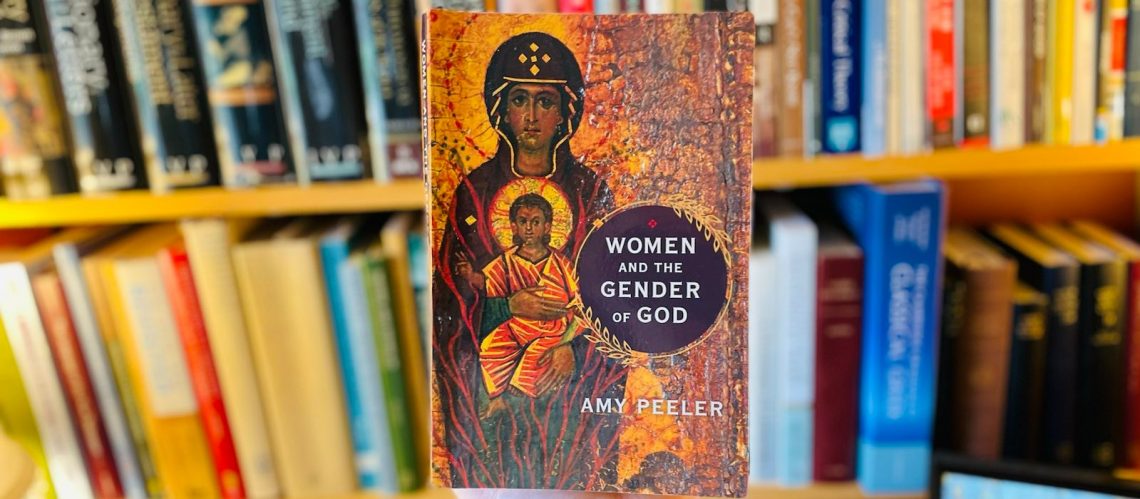This week has seen the appearance of two new reviews of Amy Peeler’s controversial book Women and the Gender of God. Both reviews are written by theology professors from Moody Bible Institute—the first by Marcus Johnson in Themelios and the second by John Clark in Touchstone. I reviewed Peeler’s book myself last January, so I read both of these new reviews with a keen interest to see if they saw what I did—that Peeler’s book contains some significant Trinitarian and Christological problems. It turns out that both of them did.
That is why I was surprised to see a bit of a meltdown online concerning Johnson’s review in Themelios. No review is above critique, including Johnson’s. Nevertheless, I’m left wondering why critics haven’t engaged more robustly with the theological substance of the review.
Esau McCauley claims that Themelios never should have published such a “harsh and biting” review because of an alleged conflict of interest. Beth Felkner Jones complains that the review is “unkind” and that Themelios failed to disclose that Johnson is on the same church staff with Peeler. Tom McCall lambastes the journal for rejecting (on theological grounds) a piece he previously wrote for them. McCall says he would “never pretend that Themelios is a reputable scholarly publication.” Beth Allison Barr pours a healthy portion of contempt upon the publisher as well.
The main complaint seems to be that it is wrong to publish a critical review of a book written by a colleague in ministry. While that is no doubt an important question, it is a bit of a distraction from the substance of the review. Peeler’s book contains significant Trinitarian and Christological problems that are in tension with both Nicea and Chalcedon. These problems have to be faced head-on and can’t be dismissed simply by denying the legitimacy of the reviewers. The problems with Peeler’s book remain no matter how much critics want to ignore reviewers with the temerity to point them out.
All of the writers cited above are egalitarians, and at least one of them is a colleague of Peeler’s at Wheaton. I understand their desire to defend the work of a like-minded scholar and colleague. I really do. But I would suggest that the best way to defend her is to actually engage the substance of the review. Johnson’s review focuses in the end on a Christological novelty—Peeler’s contention that Jesus is able to represent both men and women because he is male and has female-only derived flesh. This line of argument implies that Jesus must somehow contain both male and female in his own flesh in order to be our mediator. Would Peeler’s defenders wish to defend this? If they would, I think Chalcedon would like to have a word.*
For my part, I would like to know how Peeler’s defenders would engage the central Trinitarian problem of her work. Do Peeler’s defenders agree with Peeler’s denial of eternal generation as the primary grounds for naming God as Father (p. 114)? Do they agree with her when she rejects that God’s eternal “nature” determines His self-disclosure as Father (p. 113)? Peeler contends that eternal generation could just as well be expressed by “Mother” or “Parent” (p. 115). Do Peeler’s defenders agree with this? Peeler seems to be saying that Father/Son language is appropriate because of the trinitarian economy but not proper to the eternal relations of origin themselves. In my view, this is the fundamental error that puts her at odds with the tradition. Do Peeler’s defenders wish to engage any of this? Even if they were to succeed in discrediting a reviewer who points these things out, these problems aren’t going away. As John Clark says in his own review for Touchstone,
This should bring doctrinally astute Christians to a grinding halt. God is not Father because he causes a pregnancy unless the Son is Son of the Father only because of that pregnancy. The Father does not derive fatherhood from Mary’s motherhood, nor does Jesus call the Father “Father” because that happens to be his favorite moniker among apt alternatives. It is no nominalist trope to call Jesus the Son of the Father, but an ontological reality assuring us that who God reveals himself to be is who God has ever been in his eternal inner triune life. This is the heart of Nicene orthodoxy—the ground and grammar of the church’s trinitarian faith, and normative to our knowledge of the gospel and the gospel’s God.
Anyone who fails to reckon with this particular line of critique simply isn’t taking Peeler’s argument very seriously. Her argument really does suggest a fairly significant revision to Nicene Trinitarianism, and theologians and biblical scholars would do well to engage that revision. I hope they do.
—————
* Peeler cites Augustine in support of her contention that Jesus “embraces” both male and female in his own flesh (Women and the Gender of God, 140). Here is the language she provides from Augustine: “He was born of a woman; don’t despair men; Christ was happy to be a man. Don’t despair, women; Christ was happy to be born of a woman” (Sermon 72a.4). I would understand Augustine to be saying that Jesus’ conception and birth render him able to represent all by virtue of his humanity. I don’t see any suggestion from Augustine that Jesus contains femaleness in his physical flesh, which seems to be Peeler’s contention. I am not an Augustine scholar, so I would be eager for those who are to weigh-in on this question. Does Augustine claim that Jesus somehow contains femaleness in his physical flesh?






